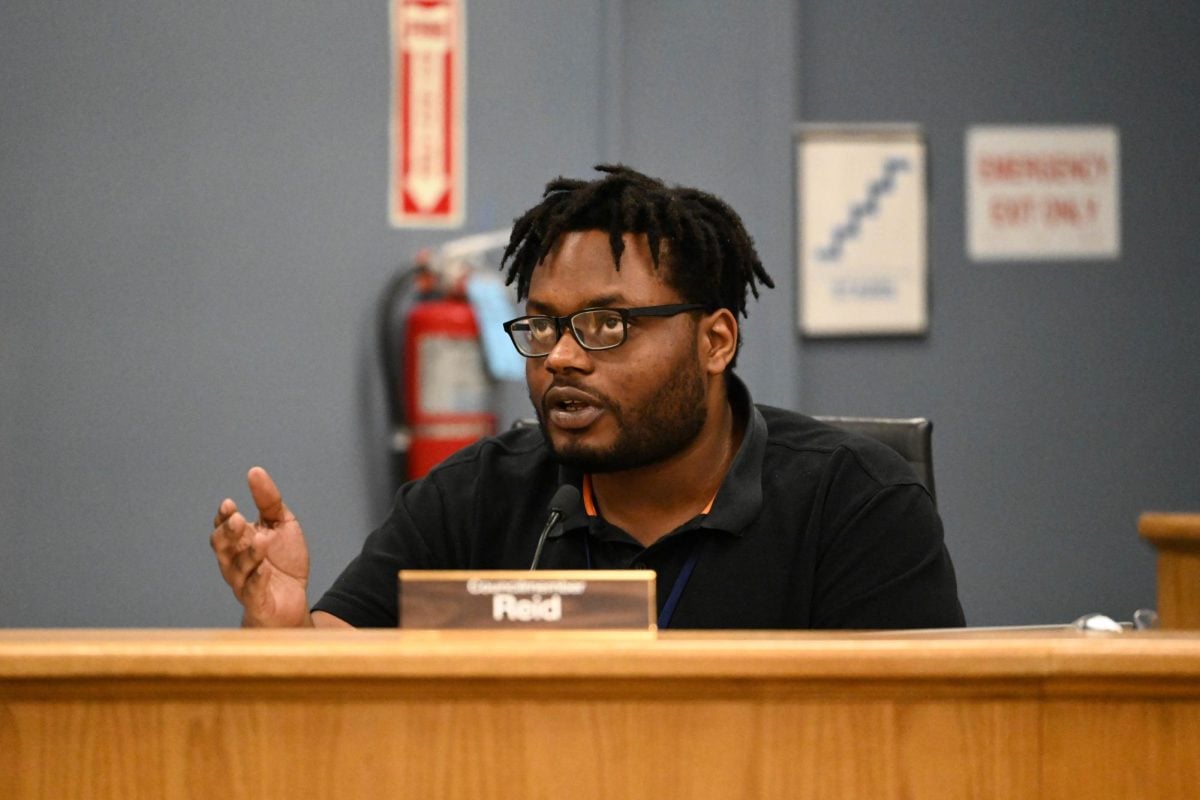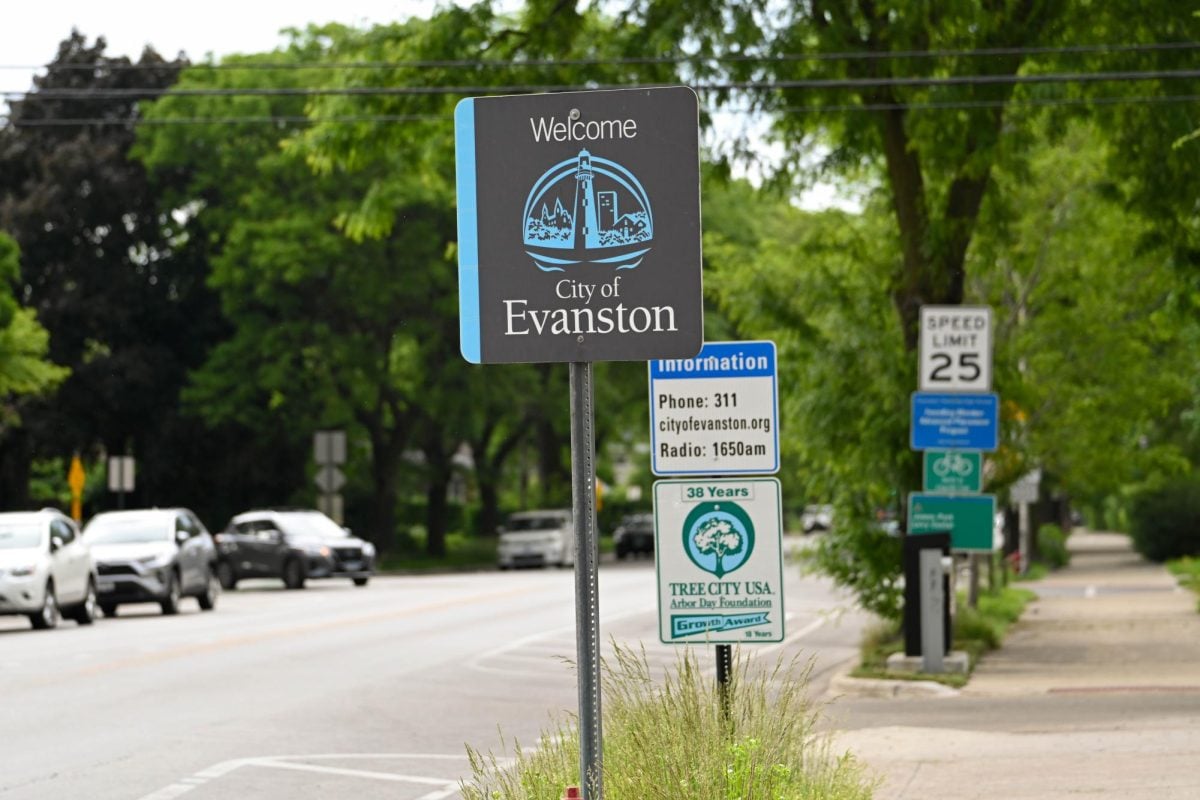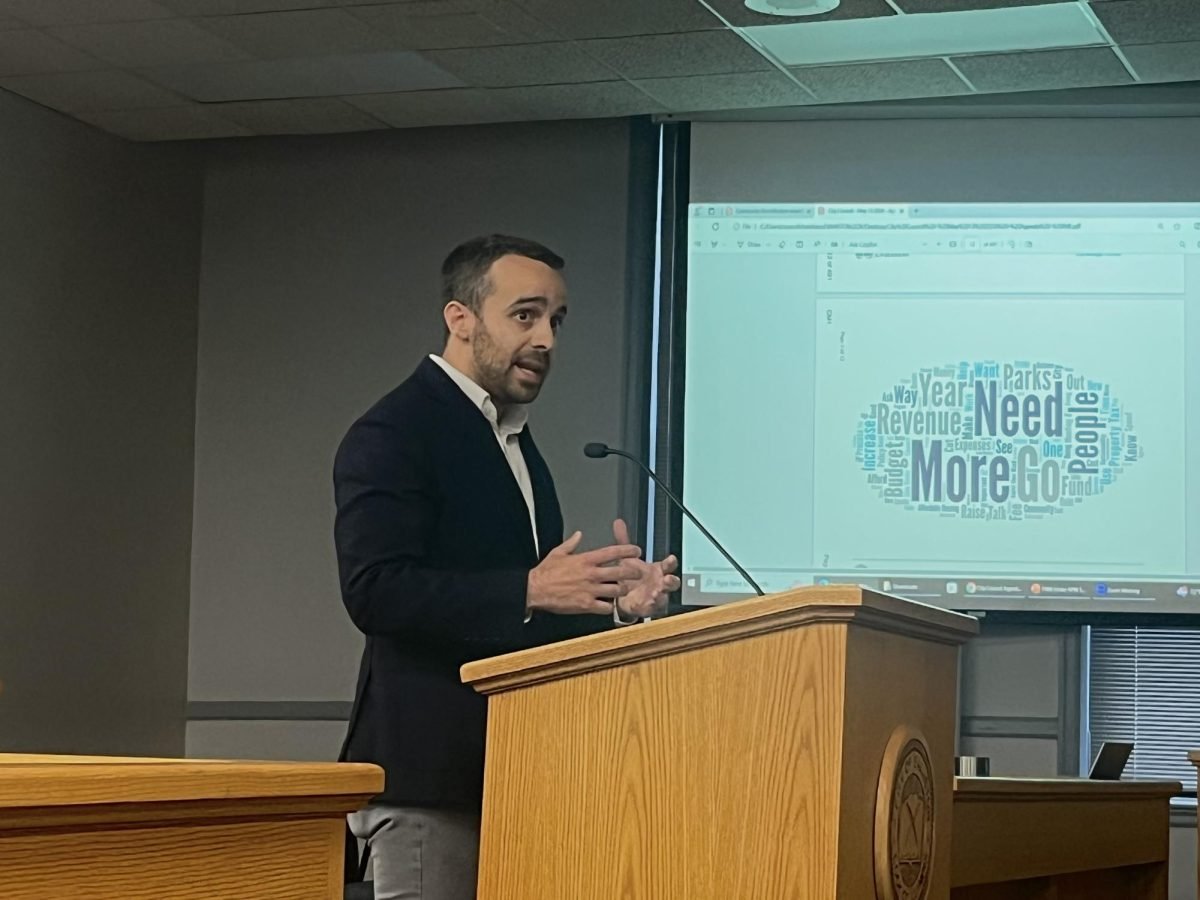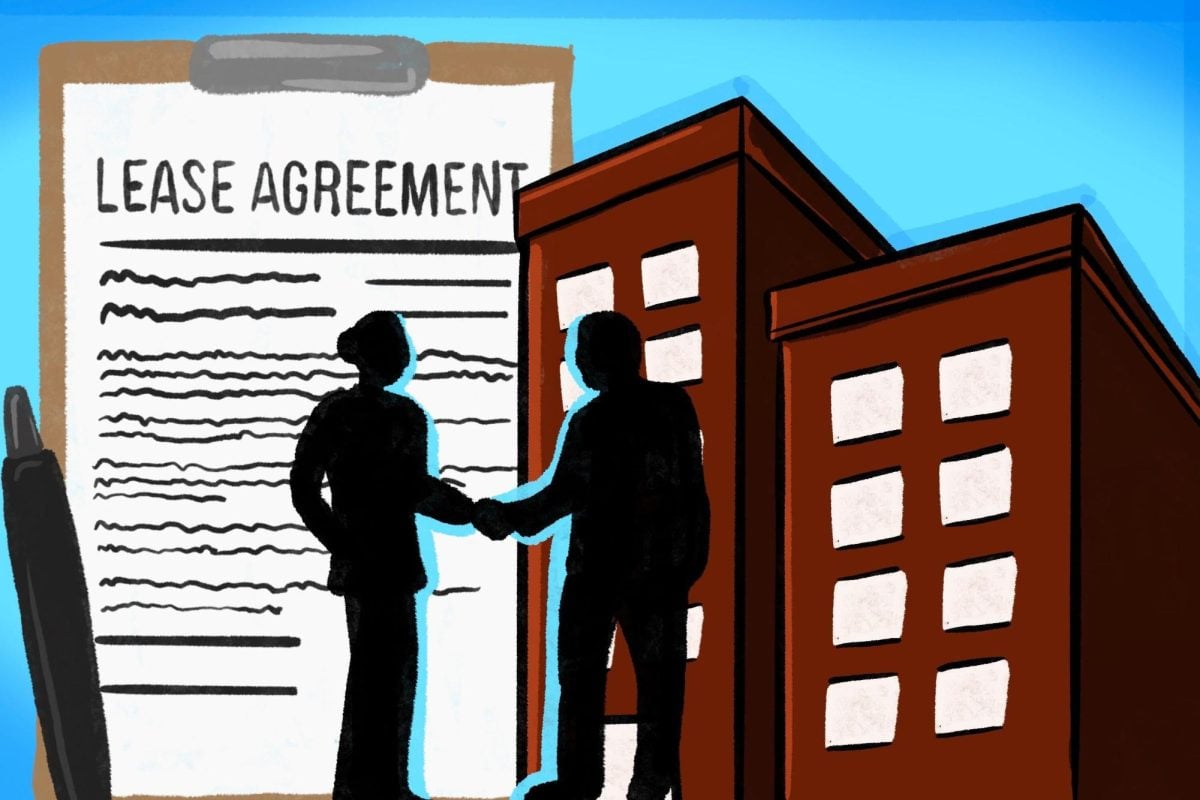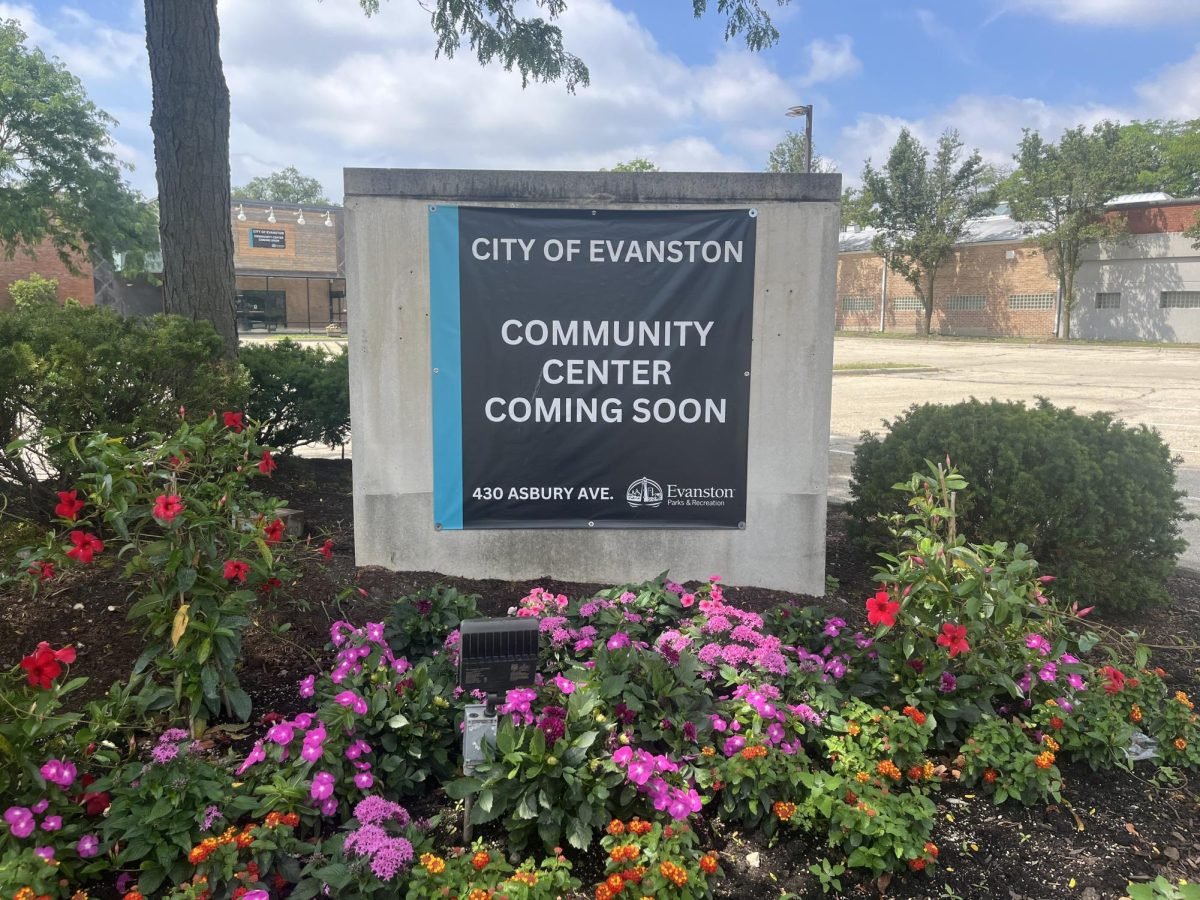Evanston residents voiced concerns about the city’s proposed 2024 budget, specifically its property tax hikes, during the “Truth in Taxation” Hearing at Monday’s City Council meeting.
The city’s proposed 2024 budget totals over $449 million, a $51.8 million increase from the 2023 adopted budget. The proposed budget includes a 7.9% increase to Evanston’s property tax levy — an almost $4.4 million increase from the current rate – and was included to boost wages for city employees.
For every dollar paid by residents in property taxes, 17% goes to the city and a combined 67% goes toward Evanston/Skokie School District 65 and Evanston Township High School District 202. The remainder of the tax helps fund the Evanston Public Library, Cook County and other taxing districts.
Councilmembers heard opinions from residents about a proposed property tax levy increase and general concerns about the budget during Monday’s public hearing.
Resident Eric Paset noted that property tax hikes would not only affect homeowners, but also local businesses and office buildings.
“We’ve got to find other sources of revenue besides continuing to raise property taxes,” Paset said. “How many more taxes can people sustain without moving out of Evanston?”
Resident Trisha Connolly noted that while the city has avoided property tax increases for two years, the proposed budget will “negate” these efforts.
She encouraged councilmembers to “minimize increases rather than present something to the community that’s all about the kitchen sink.”
Connolly noted that the city’s staff vacancy rate is projected to decrease from 5% to 2% in the proposed 2024 budget. While the city plans to fill some of its current vacancies, it could save $1.9 million by not filling all vacant positions immediately, according to the proposed budget.
Resident John Kennedy criticized the city’s willingness to increase its budget and debt limits, since it will result in higher taxes and greater debt.
“(Council) should ask and instruct staff to work up a budget based on the adopted budget from 2023,” Kennedy said. “Just start there and come back to us with what you really need.”
After public comment, councilmembers addressed some residents’ concerns.
Ald. Devon Reid (8th) pushed residents to give the city feedback about where they wanted to see budget cuts. Resident Mary Rosinski suggested the city consider cutting less critical projects in the Capital Improvement Program. CIP allocates money toward parks, facilities and other infrastructure projects.
Chief Engineer Lara Biggs said the city is currently evaluating park locations and amenities, and acknowledged the city has many parks in close proximity to one another. Biggs said the city is considering its options to prevent overspending on amenities that are already available at a nearby park.
However, Biggs said while Evanston’s parks don’t necessarily meet the city’s criteria for its most demanding projects, it’s crucial to maintain them.
Ald. Jonathan Nieuwsma (4th) acknowledged the stress that property tax hikes can place on residents.
“I got my property tax bill the other day too, and oh my goodness, we are certainly paying a lot to live in this community,” Nieuwsma said.
However, Nieuwsma asked residents to compare their property taxes to other high rates in neighboring communities. According to the proposed 2024 budget, Evanston’s property taxes remain fairly low in comparison to nearby communities. In 2021, Evanston’s property tax composite rates ranked below Skokie, Oak Park, Niles, Lincolnwood and several other neighboring suburbs.
Evanston Chief Financial Officer Hitesh Desai said the comparison will likely be similar in 2024.
“Property taxes really do feel high here in Evanston, but if we look at our surrounding neighbors, they’re actually not so bad,” Nieuwsma said. “(It) doesn’t make our job here any easier, but it’s just something to definitely keep in mind.”
Email: [email protected]
Twitter: @LilyOgburn
Related Stories:
— City Council discusses proposed 2024 budget, increased property tax levy
— City Council debates new funding sources for Evanston infrastructure projects















